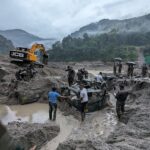Can you imagine the water you drink every day turning out to be a silent killer? For the residents and military personnel at Camp Lejeune, this nightmare became a reality. The role of the government in the Camp Lejeune lawsuit is a complex web of actions, inactions, and legal hurdles that deserve a closer look. In this article, we’ll explore how the government initially responded, the legal actions it took, and the compensation it offers to victims.
What Happened at Camp Lejeune?
Camp Lejeune, a U.S. Marine Corps base in North Carolina, became the epicenter of one of the most significant environmental lawsuits in U.S. history. Between 1953 and 1987, the water supply was contaminated with hazardous chemicals like benzene, lead, and cleaning solvents. This toxic cocktail had devastating effects, impacting as many as a million people according to Navy and Marine Corps estimates.
– Types of Chemicals: Benzene, lead, and cleaning solvents were among the contaminants.
– Affected Population: Estimates suggest that up to a million people were impacted, including both military personnel and civilians.
How Did the Government React Initially?
When the contamination came to light, the government’s initial response was far from adequate. Investigations were launched, but victims like Nancy “Catherine” Daniels, who lost three of her babies at birth, were left in the dark about the potential cause of their suffering. Despite the gravity of the situation, those affected faced numerous obstacles in seeking damages from the federal government in the Camp Lejeune lawsuit.
– Investigations: The government did initiate investigations but was slow to share findings.
– Obstacles: Victims faced legal hurdles, including a Supreme Court ruling that initially prevented them from suing the federal government.
The Legal Maze: Government’s Role in Prosecution
The legal journey for victims has been fraught with challenges. Congress recently cleared legislation allowing victims to file federal lawsuits for compensation. However, this comes after years of opposition from the Department of Defense and a Supreme Court ruling that initially prevented them from suing the government.
– Legislation: Congress finally cleared the way for victims to file federal lawsuits, a significant milestone in the Camp Lejeune lawsuit.
– Opposition: The Department of Defense was a major roadblock, opposing the lawsuits for years.
Show Me the Money: Government-Provided Compensation
For those who have suffered due to the contamination, compensation is a critical issue. The government has set up avenues for victims to claim compensation, but the process is cumbersome and fraught with bureaucratic red tape.
– Types of Compensation: Victims can claim for medical expenses, loss of income, and other damages.
– Application Process: The bureaucratic hurdles make the application process complex and time-consuming.
The Flip Side: Criticisms of the Government’s Role
The government’s handling of the Camp Lejeune lawsuit has not been without criticism. From initial delays in investigations to legal roadblocks, many argue that the government has failed in its duty to protect its citizens and military personnel.
– Public Criticism: The government has faced backlash for its handling of the crisis, including delays and lack of transparency.
– Legal Criticisms: Legal experts argue that the government could have acted more swiftly to allow victims to seek justice.
The Road Ahead: Future Implications
With legislation now cleared, the road ahead looks promising for victims seeking justice. However, the fight is far from over. Ongoing investigations and potential future lawsuits mean that those affected should keep a vigilant eye on developments.
– Ongoing Investigations: New findings could potentially open the door for more lawsuits.
– Future Lawsuits: The Camp Lejeune lawsuit may set a precedent for similar cases in the future.
Conclusion
The Camp Lejeune lawsuit reveals a complex and often frustrating role played by the government. From initial missteps to legal challenges, the journey to justice has been long and arduous. If you or someone you know has been affected by the Camp Lejeune case, now is the time to seek legal advice and consider joining the lawsuit.













